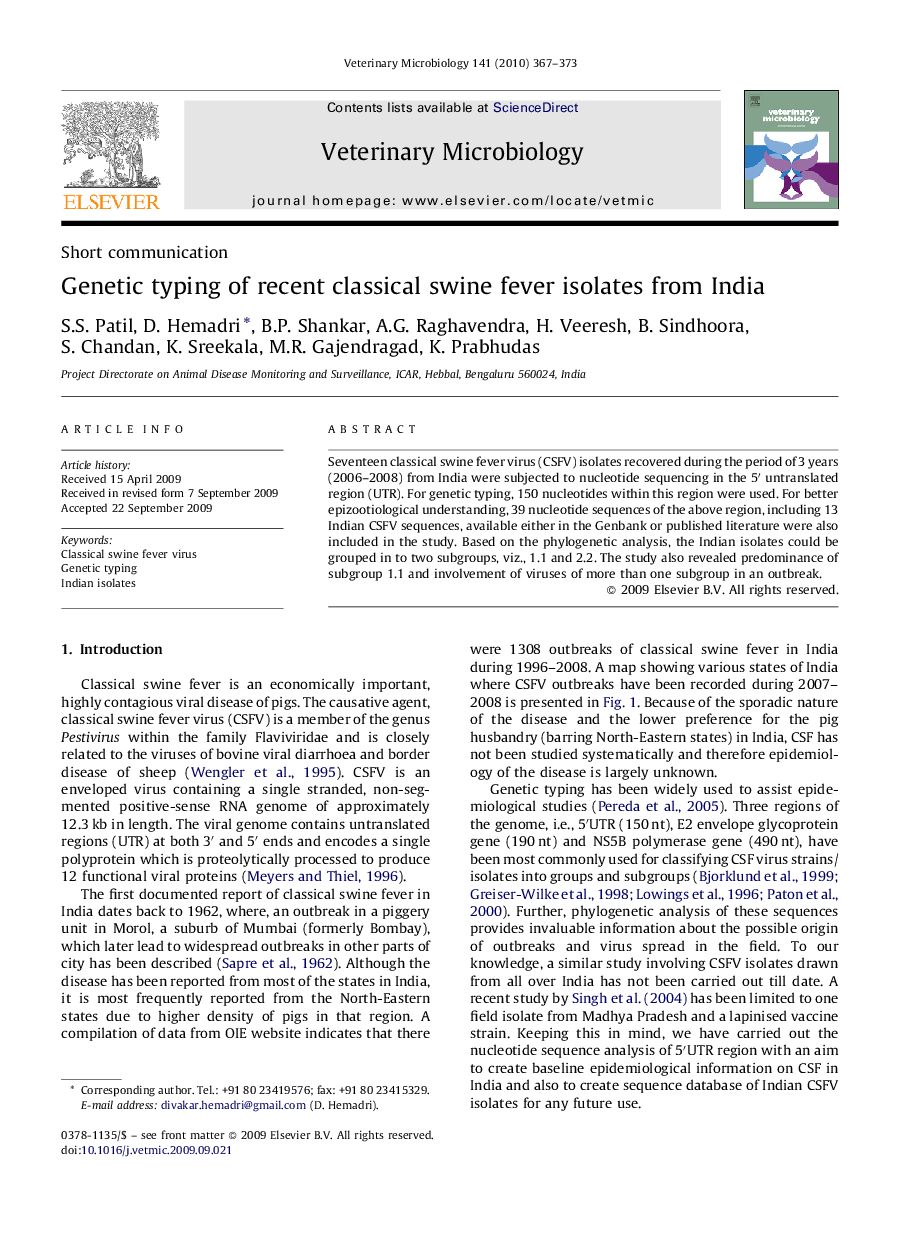| Article ID | Journal | Published Year | Pages | File Type |
|---|---|---|---|---|
| 2467821 | Veterinary Microbiology | 2010 | 7 Pages |
Abstract
Seventeen classical swine fever virus (CSFV) isolates recovered during the period of 3 years (2006–2008) from India were subjected to nucleotide sequencing in the 5′ untranslated region (UTR). For genetic typing, 150 nucleotides within this region were used. For better epizootiological understanding, 39 nucleotide sequences of the above region, including 13 Indian CSFV sequences, available either in the Genbank or published literature were also included in the study. Based on the phylogenetic analysis, the Indian isolates could be grouped in to two subgroups, viz., 1.1 and 2.2. The study also revealed predominance of subgroup 1.1 and involvement of viruses of more than one subgroup in an outbreak.
Related Topics
Life Sciences
Agricultural and Biological Sciences
Animal Science and Zoology
Authors
S.S. Patil, D. Hemadri, B.P. Shankar, A.G. Raghavendra, H. Veeresh, B. Sindhoora, S. Chandan, K. Sreekala, M.R. Gajendragad, K. Prabhudas,
